Abstract
Court-ordered caesarean sections against the explicit wishes of the pregnant woman have been criticised as violations of the woman's fundamental right to autonomy and to the inviolability of the person--particularly, so it is argued, because the fetus in utero is not yet a person. This paper examines the logic of this position and argues that once the fetus has passed a certain stage of neurological development it is a person, and that then the whole issue becomes one of balancing of rights: the right-to-life of the fetal person against the right to autonomy and inviolability of the woman; and that the fetal right usually wins.
Full text
PDF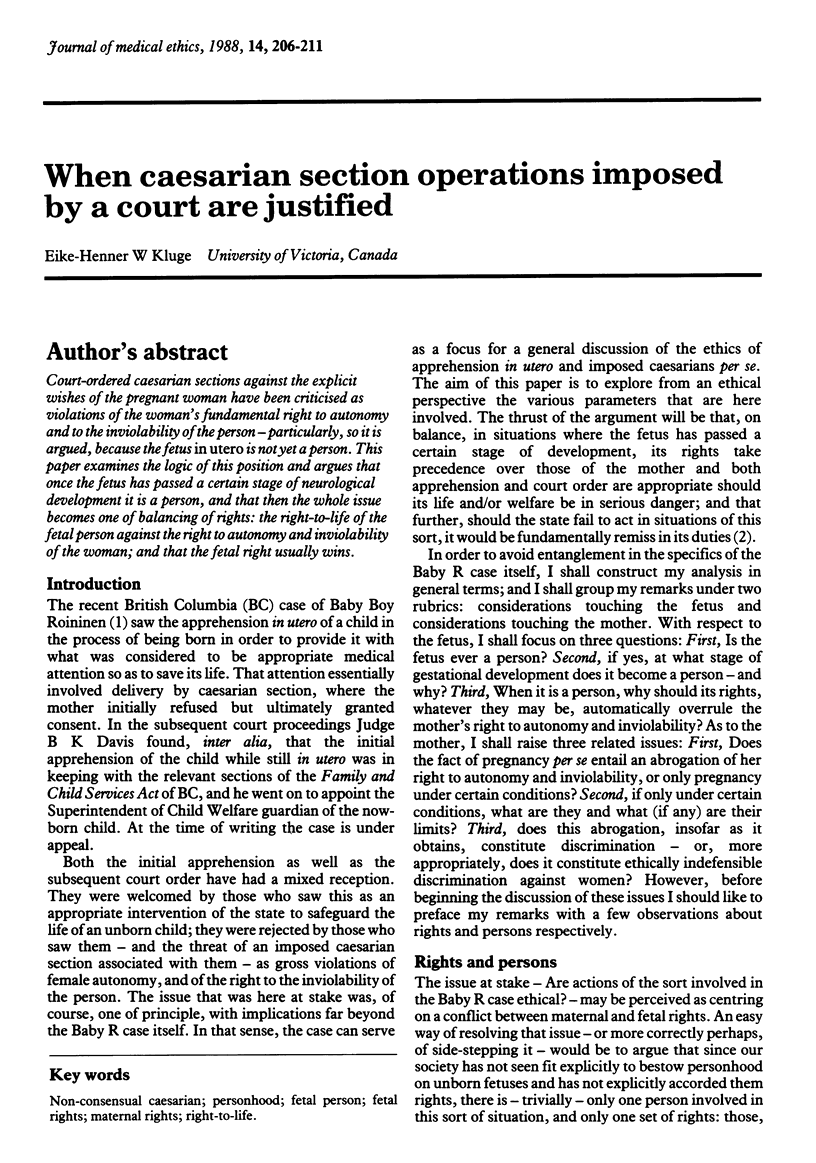
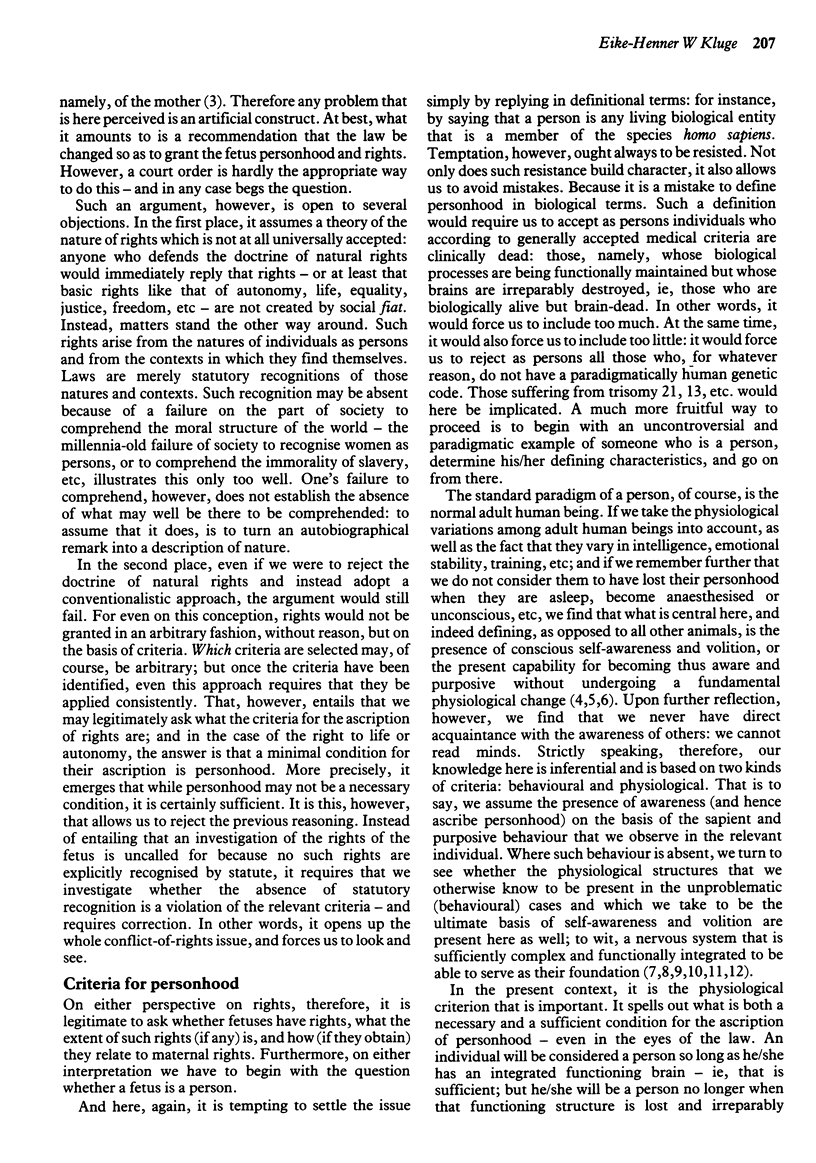
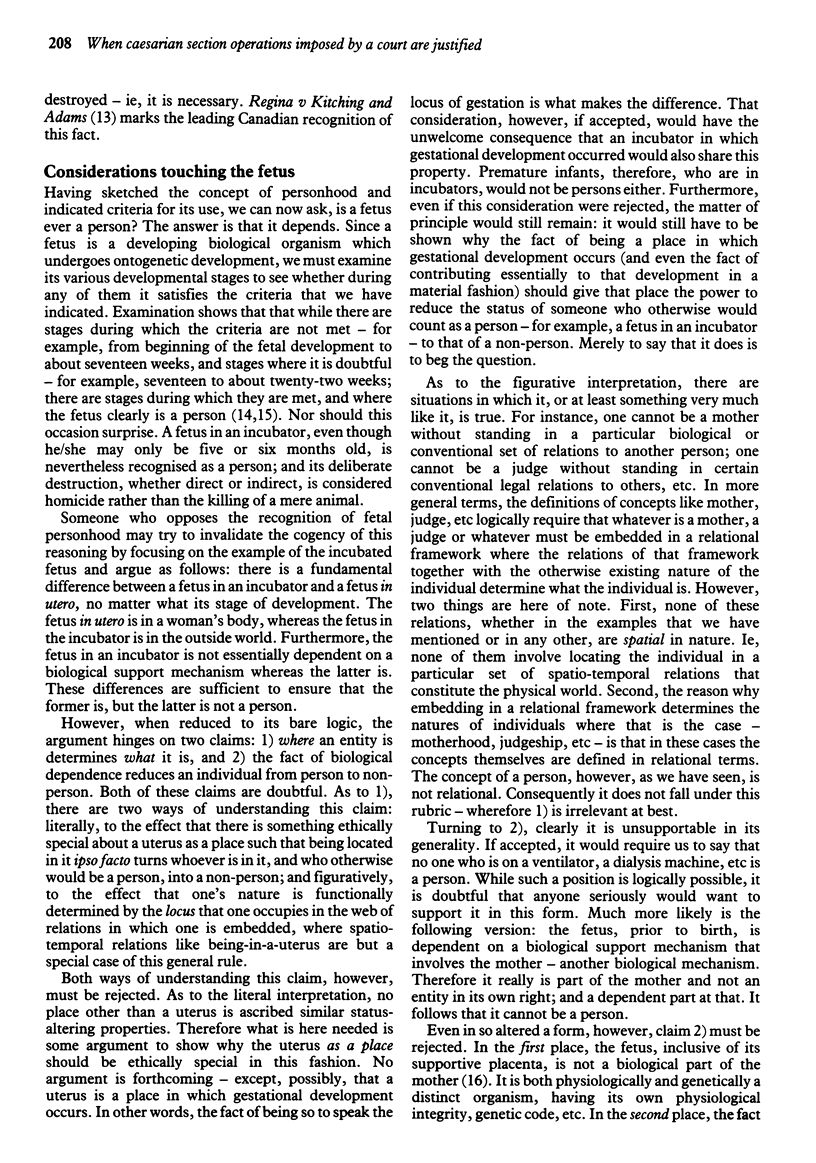
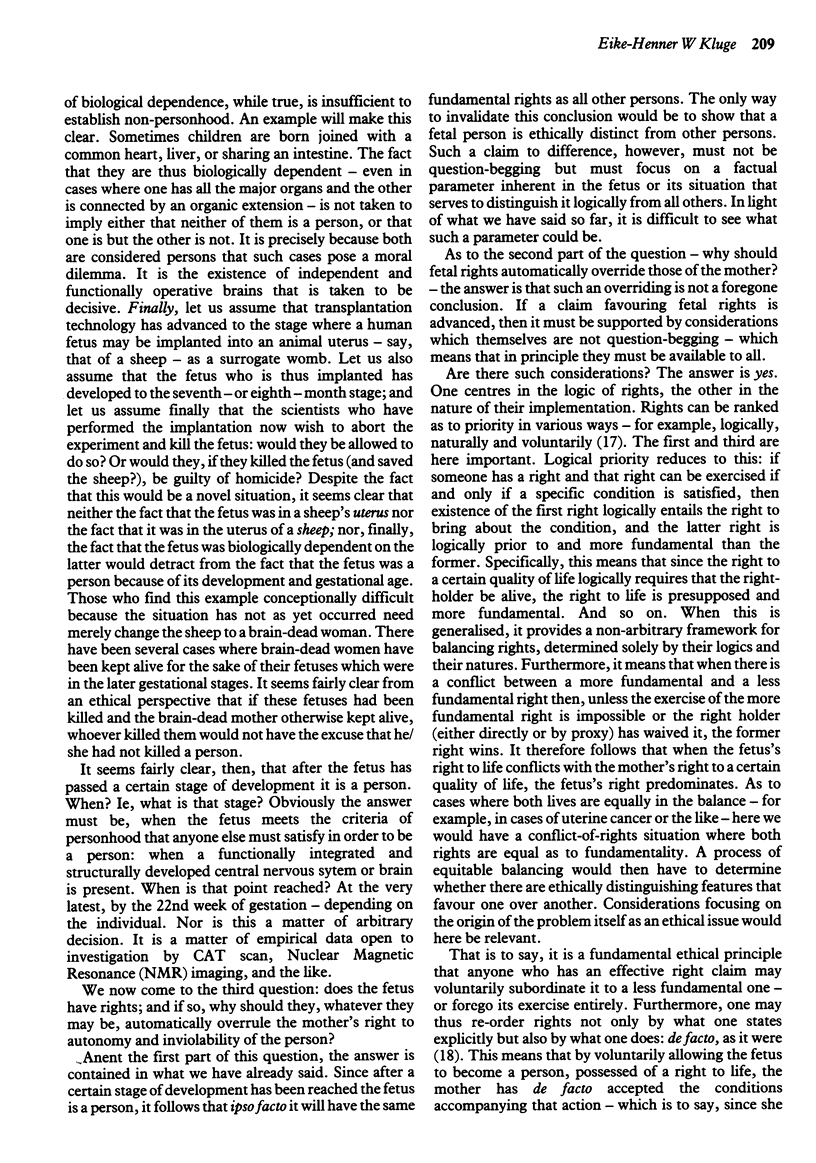
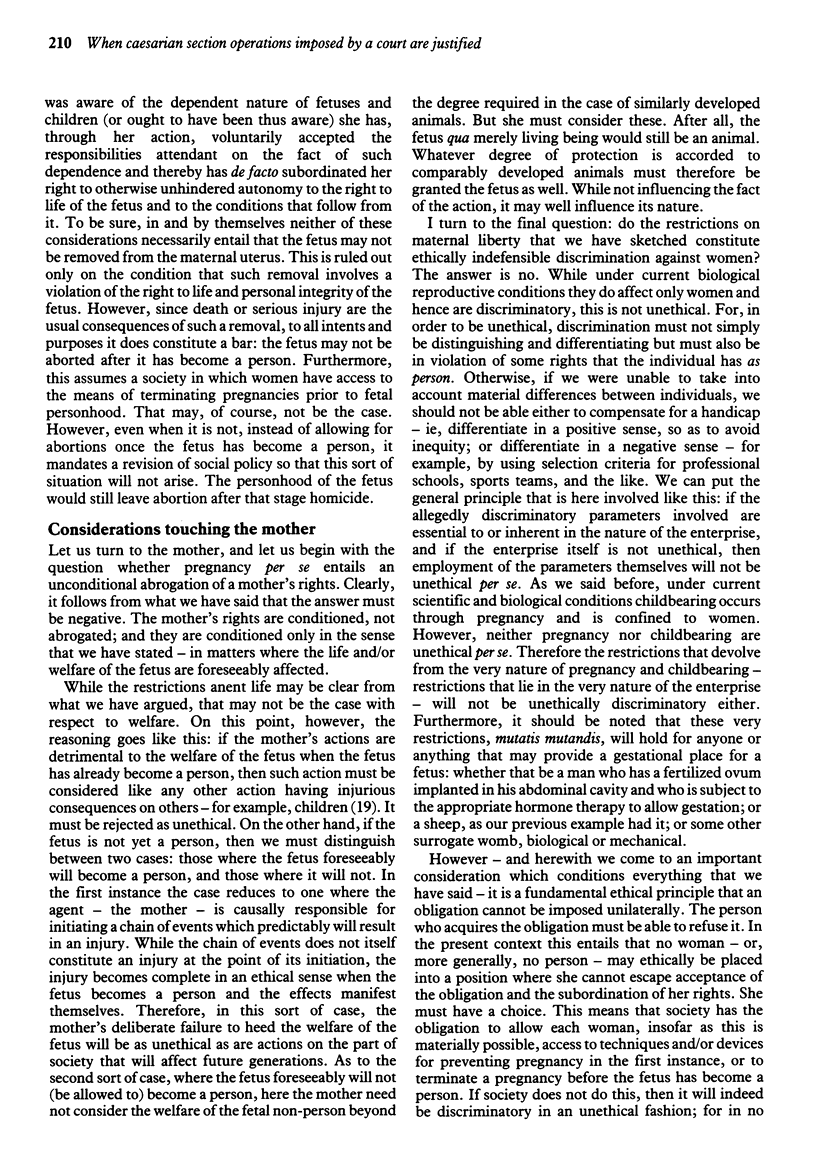
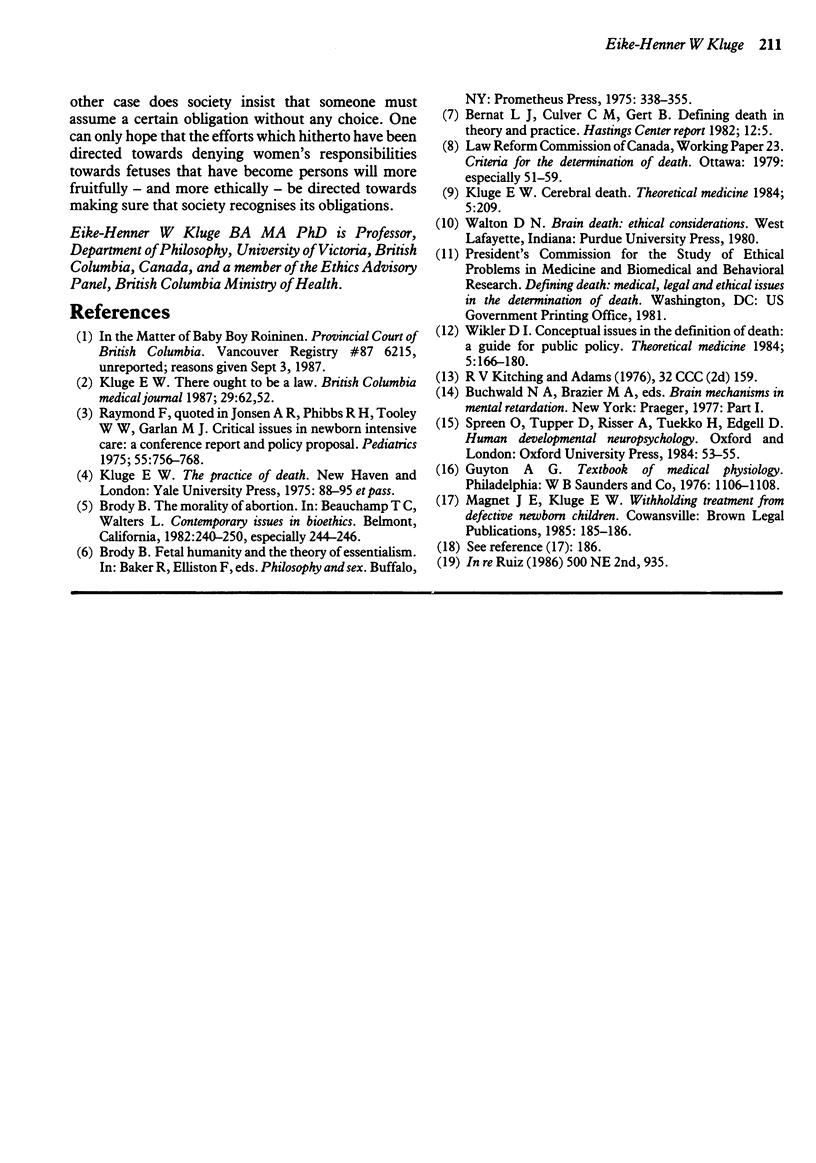
Selected References
These references are in PubMed. This may not be the complete list of references from this article.
- Kluge E. H. Cerebral death. Theor Med. 1984 Jun;5(2):209–231. doi: 10.1007/BF00489492. [DOI] [PubMed] [Google Scholar]
- Wikler D. I. Conceptual issues in the definition of death: a guide for public policy. Theor Med. 1984 Jun;5(2):167–180. doi: 10.1007/BF00489489. [DOI] [PubMed] [Google Scholar]


